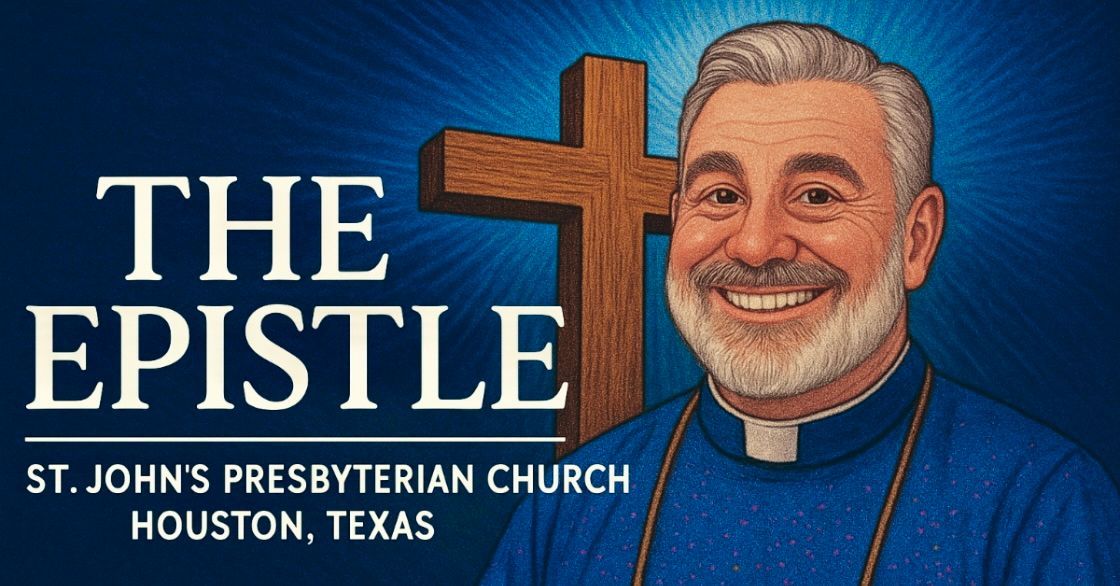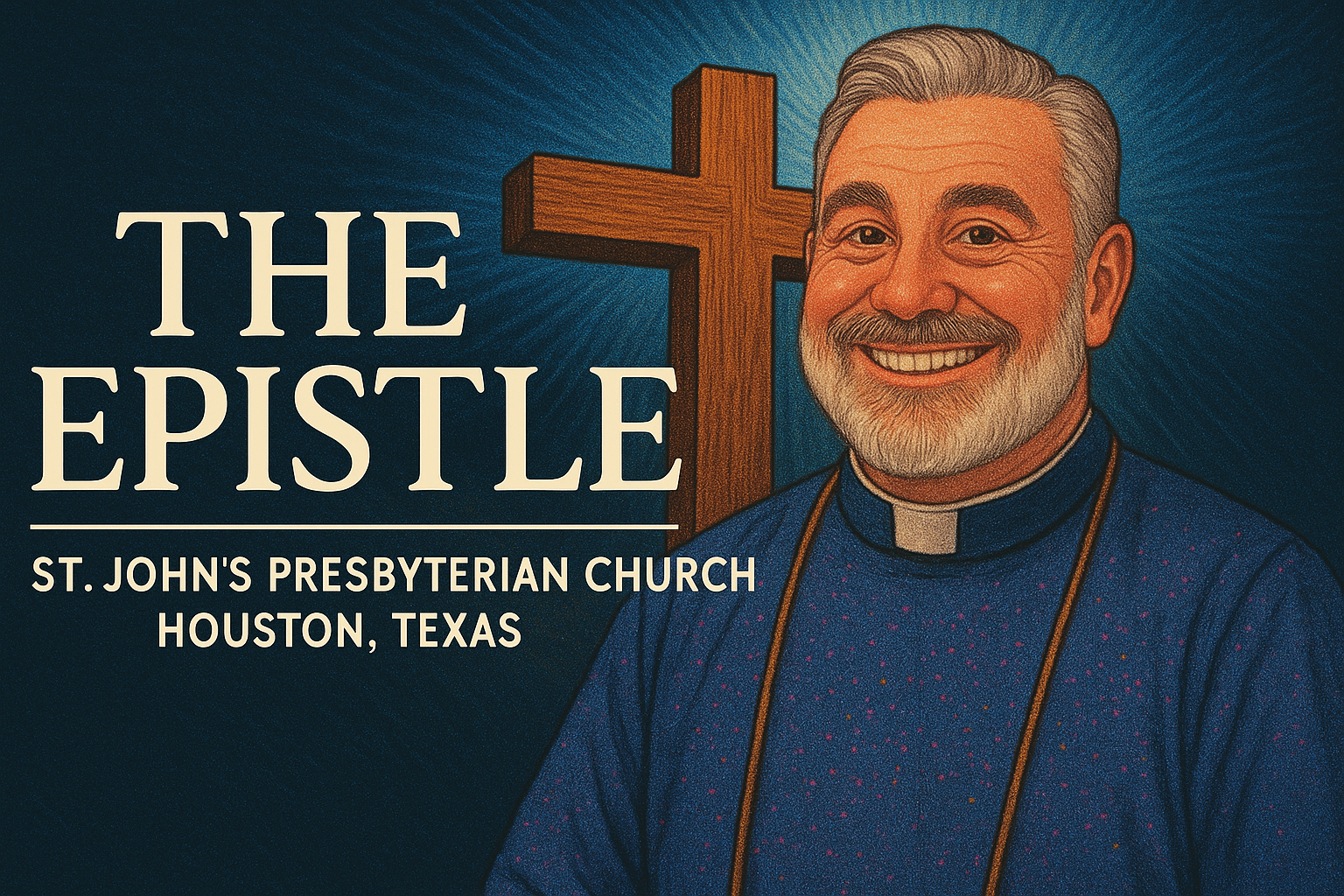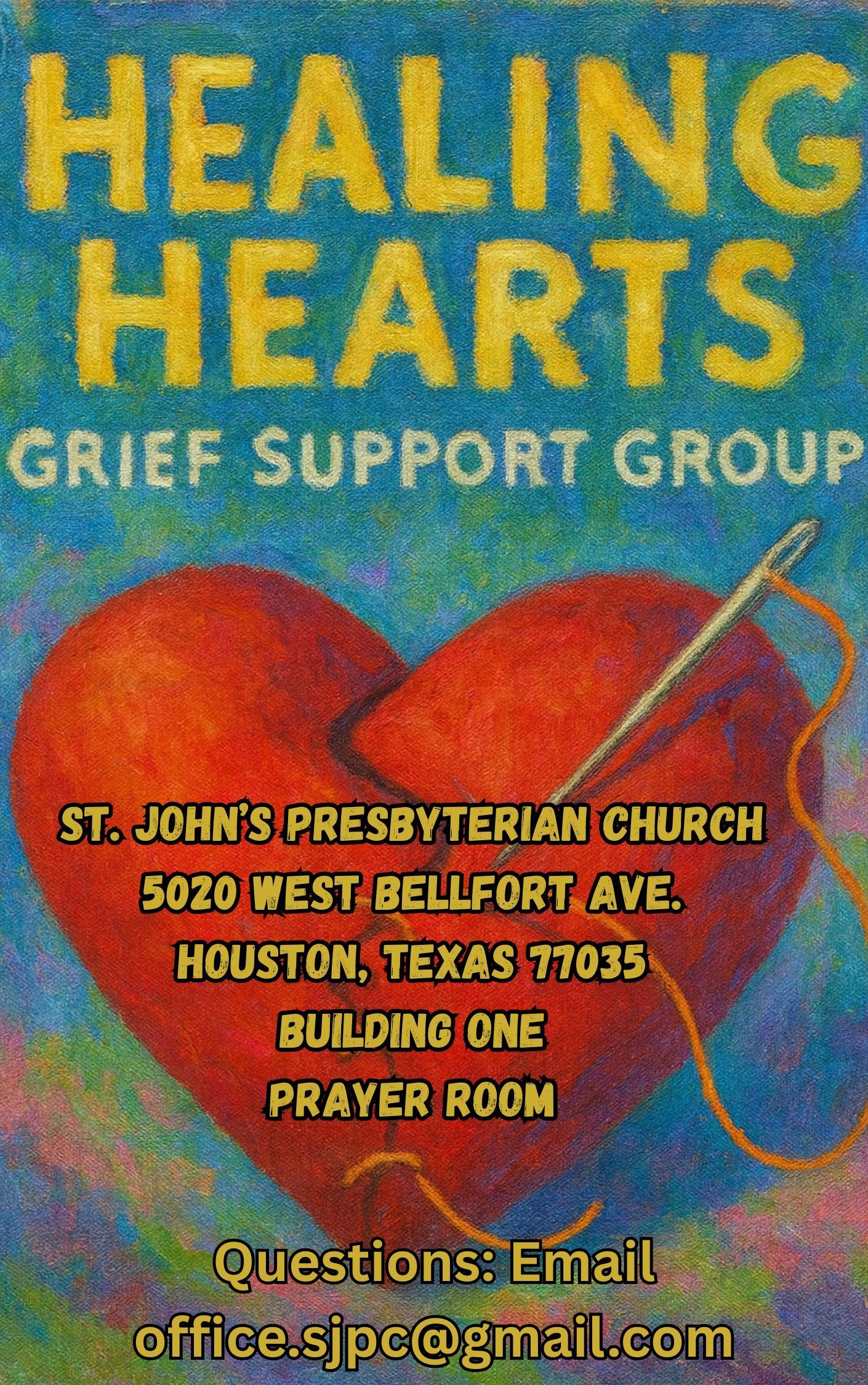Is Presbyterian Christianity? Beliefs Explained
Let me clear something up right away. I hear this question more often than you'd think: "How is Presbyterian different from Christianity?"
Here's the simple answer: It's not.
Presbyterian isn't a different religion from Christianity. Presbyterian IS Christianity. Think of it like this: Christianity is the big family tree, and Presbyterian is one of the branches. We're not a separate faith. We're a specific way of following Jesus Christ within the larger Christian tradition.
But I understand why people get confused. Walk through Houston and you'll see Baptist churches, Catholic churches, Methodist churches, Presbyterian churches, and dozens of other varieties. It can seem like they're all different religions competing for your attention.
They're not. They're all Christians who love Jesus, read the same Bible, and believe God sent his Son to save the world. The differences come down to how we understand certain parts of the faith and how we organize our churches.
So when someone asks me how Presbyterian differs from Christianity, I usually smile and say, "We don't. We're just Presbyterian Christians instead of Baptist Christians or Catholic Christians or Methodist Christians."
Now, that doesn't mean there are no differences at all. There absolutely are. But the differences are within Christianity, not outside it. Like siblings in the same family who have different personalities but share the same DNA.
Let me walk you through what makes Presbyterian Christianity distinctive.
We're Protestant Christians With Reformed Roots
First, you need to know about the big split in Christianity that happened about 500 years ago. Before that, most Christians in Western Europe were Catholic, united under the Pope in Rome. But in the 1500s, some Christians started saying the church had drifted away from what the Bible actually taught.
These reformers (people who wanted to reform or fix the church) started what we now call the Protestant Reformation. "Protestant" just means we protested some of the Catholic Church's practices and wanted to get back to biblical basics.
Presbyterian Christians came out of that Protestant Reformation, specifically influenced by a man named John Calvin in Geneva, Switzerland. He and others like him emphasized certain biblical truths that became the foundation of what we call Reformed theology.
So when you visit St. John's Presbyterian Church in Houston, you're experiencing a form of Christianity that traces its roots back through Calvin, through the Protestant Reformation, all the way back to Jesus and the apostles. We're Christians. Just Presbyterian-flavored Christians.
What Makes Presbyterian Theology Distinct
Okay, so if we're all Christians, what makes Presbyterian theology different from other Christian groups?
We emphasize God's sovereignty. This is a big one. We believe God is completely in control of everything. Not in a fatalistic "nothing matters" way, but in a "God has a purpose and plan" way. This means we trust that our lives have meaning because they're part of God's bigger story.
A lot of other Christians believe this too, of course. But Presbyterians really stress it. When we worship on Sunday morning, everything points to God's glory and God's plan, not just our feelings or our attempts to reach up to God through our own efforts.
We believe in grace alone. Here's what this means in plain English: You can't earn your way to heaven. You can't be good enough, moral enough, or religious enough to deserve God's love. Salvation comes purely as a gift from God through faith in Jesus Christ.
Again, many Christians believe this. But Presbyterians inherited a particularly strong emphasis on grace from our Reformed roots. It shapes everything about how we approach faith. We don't worship to make God happy with us. We worship because God already loves us in Christ.
We take Scripture very seriously. Walk into a Presbyterian worship service and you'll notice we read a lot of Bible. Our sermons work through Scripture verse by verse, not just picking inspiring quotes. We believe the Bible is our primary authority for knowing God and understanding how to live.
Is this unique to Presbyterians? No. But compared to some churches that treat the Bible as one wisdom source among many, or that pick and choose verses to support whatever message they want to preach, Presbyterian churches tend to let Scripture actually drive the conversation.
At St. John's, when I preach, I'm not giving you my personal opinions with some Bible verses sprinkled in. I'm trying to explain what the text actually says and means, even when it challenges us.
We believe in the priesthood of all believers. This is a fancy way of saying there's no spiritual elite. You don't need a special priest to mediate between you and God. If you're a Christian, you have direct access to God through Jesus Christ.
This affects how we pray, how we read the Bible, and how we think about spiritual authority. Every believer can pray directly to God. Every believer can read and understand Scripture. We're all priests, in a sense.
How We Organize Our Churches
Here's where Presbyterians really stand out: church governance. I know, governance sounds boring. But stay with me, because this matters more than you might think.
The word "Presbyterian" comes from the Greek word "presbyteros," which means "elder." Our churches are governed by elders elected from the congregation. These are regular people, not some distant hierarchy of religious officials.
At St. John's, our Session (that's what we call the board of elders) includes both pastors like me and lay people elected by the congregation. We make decisions together. When something important needs deciding, we don't have a bishop tell us what to do. We gather, pray, study Scripture, and decide together.
This is different from Catholic churches, where authority flows from the Pope down through bishops to local priests. It's also different from some Protestant churches where a single pastor makes all the decisions.
We believe this representative system reflects biblical patterns and keeps power distributed rather than concentrated in one person's hands. You know the people making decisions because they're your neighbors, the folks you see at the grocery store.
Our Two Sacraments
Christians disagree about sacraments (holy rituals that Jesus commanded). Some traditions have seven sacraments. Some don't use the word sacrament at all.
Presbyterians recognize two sacraments: baptism and the Lord's Supper (also called communion or the Eucharist).
Baptism: We baptize both adults who come to faith and infants born into Christian families. The infant baptism part surprises some people. Here's the thinking: Just like children born into Jewish families were circumcised as a sign of God's covenant promises, we baptize children as a sign that God's grace includes them.
This doesn't mean the child is automatically saved just by getting water sprinkled on their head. It means we're claiming God's promises for this child and committing as a church community to raise them in the faith. When they're old enough, they'll need to personally confirm their faith.
We don't believe you have to be fully immersed underwater to be properly baptized, though some Presbyterian churches do offer that option. What matters is the water and God's promise, not the exact method.
The Lord's Supper: When we celebrate communion at St. John's, we practice what's called "open table." This means if you trust in Jesus Christ, you're welcome to participate, regardless of whether you're Presbyterian or not. You don't have to be a member of our church.
Some Christian traditions restrict communion to only their members. Others see it as a purely symbolic memorial meal. Presbyterians believe Christ is really present when we share bread and wine (or grape juice), but we're not saying the bread literally becomes Jesus' body like Catholics teach. It's a spiritual presence, a means of grace.
How Presbyterian Worship Feels Different
If you've visited different churches in Houston, you've probably noticed huge variety in worship styles. Walk into a megachurch and you might see a full band, stage lighting, fog machines. Visit a Catholic mass and you'll experience formal liturgy with a priest in robes. Drop by a Pentecostal service and you might encounter speaking in tongues and extended periods of spontaneous prayer.
Presbyterian worship falls somewhere in the middle of that spectrum. We're not casual and contemporary, but we're not highly formal either. We follow a structured order of worship, but there's room for warmth and spontaneity within that structure.
At St. John's, a typical Sunday service includes:
- A call to worship (reminding us why we've gathered)
- Hymns and songs (both traditional and more contemporary)
- Prayer of confession (honestly acknowledging our failures)
- Assurance of pardon (hearing God's forgiveness declared)
- Scripture readings (usually from both Old and New Testaments)
- The sermon (explaining and applying biblical truth)
- Prayers for our community and world
- An offering (giving back to God from what we've received)
- A benediction (blessing as we're sent out to serve)
This structure tells a story. God calls us. We respond. We confess our need. God meets us with grace. God speaks through Scripture. We offer ourselves back to God. God sends us out renewed.
Some people find this structure comforting. Others initially find it unfamiliar. But give it a few Sundays and most people discover something: The structure frees you to actually worship instead of wondering what's coming next. You can focus on God instead of the program.
We sing hymns that have sustained Christians for generations. We're not against newer songs, but we believe there's wisdom in the old hymns. They teach theology while we sing. They connect us to believers across centuries.
We preach sermons that work through Scripture systematically. Over the course of months, we might work through an entire book of the Bible, examining it passage by passage. This prevents cherry-picking favorite verses and forces us to grapple with difficult texts.
Presbyterian Faith in Action
Here's something I love about Presbyterian Christianity: It doesn't let you separate faith from action. Yes, we care about correct theology. Yes, we value thoughtful Bible study. But our faith always points outward toward service.
At St. John's, we partner with Braes Interfaith Ministries to serve Houston families in need. We maintain a community garden that feeds hungry people. We support Presbyterian Children's Homes and Services. These aren't separate from our worship. They flow directly from it.
Presbyterian theology teaches that the God who created everything cares about justice, mercy, and compassion. If we're going to follow Jesus, we can't just think right thoughts about him. We have to actually live like him.
This is where some people get tripped up. They think Presbyterians are all about intellectual faith, all head and no heart. That's not true. Yes, we engage our minds. But we also roll up our sleeves.
On any given Tuesday at St. John's, you might find church members tutoring kids, delivering meals to homebound seniors, advocating for better housing policies, or planning our next community event. Faith that stays comfortable in the pew isn't real faith.
Presbyterian Versus Other Christian Traditions
Let me briefly compare Presbyterian Christianity to some other Christian groups you might be familiar with:
Presbyterian vs Catholic: Catholics look to the Pope and bishops for authority. Presbyterians look to Scripture and elected elders. Catholics have seven sacraments. We have two. Catholics believe the bread and wine literally become Christ's body and blood. We believe Christ is spiritually present but not physically. Both groups love Jesus, read the Bible, and seek to follow God. The differences are real but not fundamental.
Presbyterian vs Baptist: Baptists baptize only adults who can confess faith for themselves. Presbyterians baptize infants too. Baptists practice full immersion baptism. Presbyterians usually sprinkle or pour water. Baptists give each local congregation complete autonomy. Presbyterians connect churches through regional bodies called presbyteries. Again, same Jesus, different details.
Presbyterian vs Methodist: Methodists and Presbyterians are actually pretty similar. Both emphasize grace, both value social service, both are Protestant. The main difference is that Methodists historically emphasized personal holiness and emotional conversion experiences more than Presbyterians did. We tend to be a bit more reserved in worship, a bit more intellectual in approach.
Presbyterian vs Pentecostal/Charismatic: Pentecostal and charismatic Christians emphasize spiritual gifts like speaking in tongues, prophecy, and miraculous healing. Presbyterian churches generally don't practice these gifts in worship, though we respect Christians who do. We tend toward more ordered, structured worship rather than spontaneous expressions.
The point isn't that one group is right and others are wrong. The point is that Christianity is a big family with different expressions. We're all following Jesus. We just emphasize different aspects of the faith and organize ourselves differently.
Why Presbyterian Christianity Matters in Houston
Houston is an incredibly diverse city. You can find literally any kind of church you want here. Megachurches with thousands of people. Tiny storefront churches with twenty. Formal liturgical services. Spontaneous charismatic worship. Traditional hymnody. Contemporary Christian rock.
So why choose Presbyterian? Why visit St. John's?
Here's my honest answer: Because some of you need roots more than you need options.
In a city of endless spiritual choices, Presbyterian Christianity offers a tradition that's been testing and refining its understanding of faith for five centuries. We're not making it up as we go. We're not chasing the latest spiritual trend. We're not trying to be cool or relevant.
We're trying to be faithful. We're offering worship that's intellectually honest, emotionally real, and spiritually substantive.
If you're tired of churches that feel like entertainment venues, Presbyterian worship might feel like coming home. If you're weary of spiritual shopping, trying different traditions but never staying long enough to be changed, Presbyterian commitment might be exactly what you need.
If you're looking for a church small enough that people actually know your name but rooted in a tradition bigger than any one congregation, St. John's could be your place.
We're not perfect. No church is. But we're real people trying to follow Jesus faithfully in community. We're committed to worship that honors God, to preaching that respects Scripture, to service that actually helps our neighbors.
Common Questions About Presbyterian Christianity
"Do I have to be Presbyterian to visit?" Absolutely not. Many people at St. John's didn't grow up Presbyterian. We welcome anyone sincerely seeking to know God and serve others. Come as you are.
"Will worship feel too formal or stuffy?" Some people initially find our structure unfamiliar. But most discover it's not stiff or cold. We're warm people following a thoughtful pattern. Give it a few visits before you decide.
"Can I take communion if I'm not Presbyterian?" Yes. We practice open communion. If you trust in Jesus Christ, you're welcome at the table, regardless of your denomination.
"Do Presbyterians speak in tongues?" That's not part of our typical worship tradition. We respect Christians who practice this gift, but it's not something you'll encounter at St. John's.
"How does Presbyterian Christianity relate to Reformed theology?" Presbyterian churches are part of the Reformed tradition within Protestantism. Reformed theology emphasizes God's sovereignty, salvation by grace, and the authority of Scripture. If you want to learn more, visit our Sunday service and talk with me after. I'm always happy to explain our beliefs.
An Invitation to Experience Presbyterian Christianity
So here's my invitation: Don't just read about Presbyterian Christianity. Experience it.
Visit St. John's Presbyterian Church on a Sunday morning. Sit in our sanctuary. Sing our hymns. Hear Scripture explained. Share communion with us. Meet our people.
See if this expression of Christianity speaks to you. See if the combination of thoughtful theology, structured worship, and genuine community feels like home.
We gather every Sunday at 11:00 AM at 5020 West Bellfort Avenue in Houston. Our sanctuary seats about 200, and on a full Sunday it feels genuinely full because everyone participates. Elders pray. Kids sing. We're small enough that you'll actually be known.
Presbyterian Christianity isn't better than other forms of Christianity. But it might be better for you. Some people thrive in large, contemporary services with full bands. Others need the quiet depth of traditional worship. Some people love spontaneous, emotional expression. Others prefer thoughtful reflection.
If you're someone who values both intellectual engagement and heartfelt worship, Presbyterian Christianity might fit. If you want a church where you're not anonymous, where people will know your story and walk with you through life, St. John's could be your community.
And here's the beautiful thing: We're all Christians. Whether you end up Presbyterian or Baptist or Methodist or Catholic, if you're following Jesus, you're part of the family. The question isn't which branch of Christianity is correct. The question is which branch will help you grow in faith and serve the world.
For many people in Houston, that answer is Presbyterian. For some of those people, the specific answer is St. John's.
Come find out if you're one of them.
St. John's Presbyterian Church
5020 West Bellfort Avenue
Houston, TX 77035
(713) 723-6262
Sunday Worship: 11:00 AM
We're not a different religion. We're Christians. Presbyterian Christians. And we'd love to welcome you into our community as you explore what faithful discipleship looks like in the Reformed tradition.
No perfect people required. Just honest seekers willing to be formed by a tradition older and deeper than contemporary spiritual trends.






